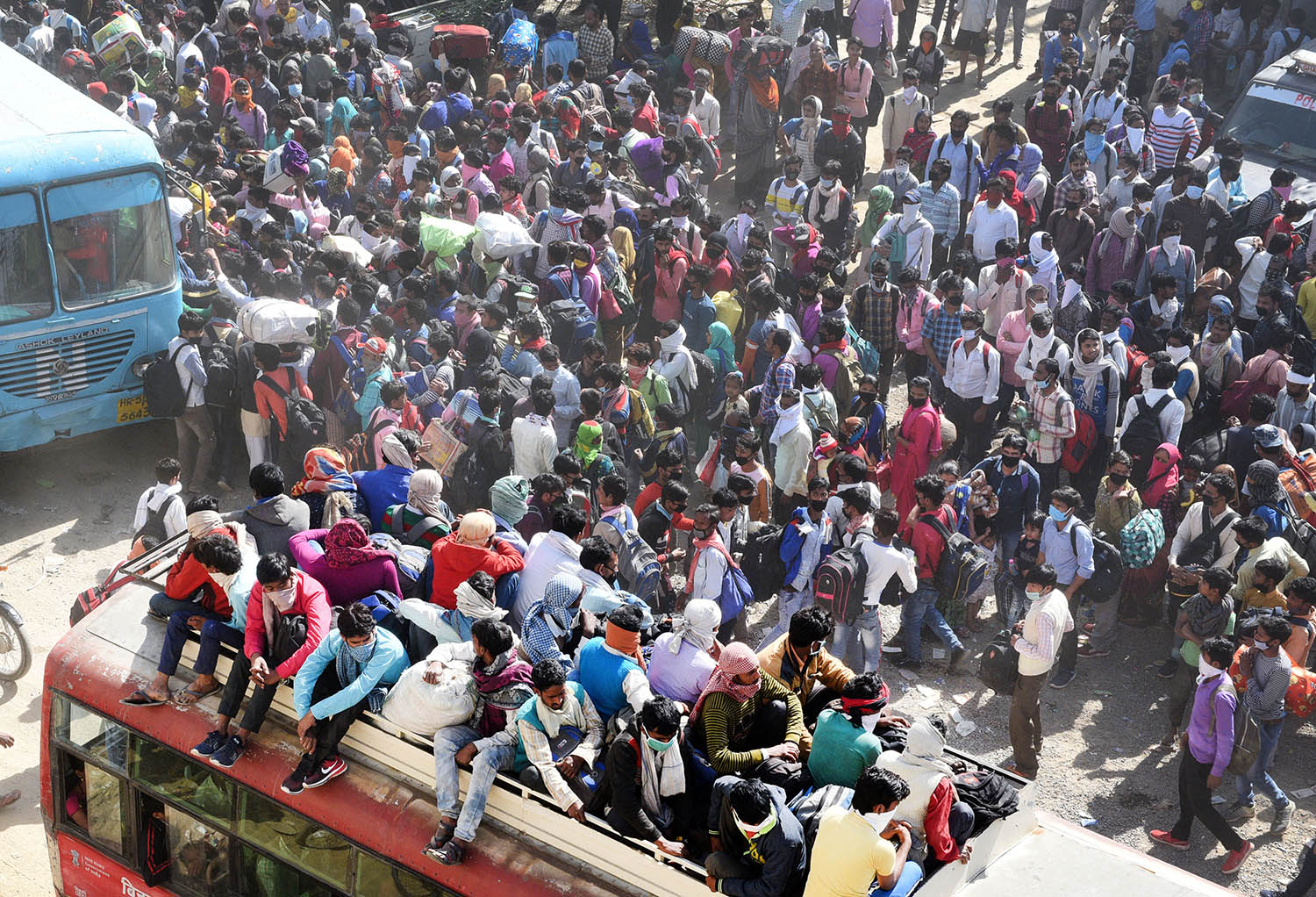Prime Minister Narendra Modi’s announced the nationwide lockdown for 21 days beginning on the 25th March after given the ongoing crisis emanating from the spread of COVID-19. However, the lockdown was ill-thought, let us use game theory to understand.
In prisoner’s dilemma, no individual prisoner can determine the outcome of the game (i.e. the punishment received by each prisoner). The best-case is if both prisoners stay silent. But if one prisoner expects the other to remain silent, he has an incentive to defect. If both prisoners think this way, they both defect and get the worst outcome as shown in the matrix below.
Think of the two players as the government and the migrant workers. Here are some features of the game:
- The migrant labour and the government disagree on their goals. The government wants to ensure that people stay where they are, and the migrant labour (who have lost their jobs) want to go home. It doesn’t matter who is right and wrong. What matters is a disagreement about the goals.
- Just as in prisoner’s dilemma, one player cannot expect unconditional cooperation from the other player. Unconditional cooperation is a losing proposition. Players will play strategically, advancing their interests.
In this game, unconditional cooperation would have been for the government to enforce a lockdown, and for the labourers to seek shelter in place. Even if the labourers cannot afford to have shelter (rent is due next week), and have no means to eat at their usual, cheap spots, and do not know when this lockdown will be lifted. Expecting cooperation from them in this situation is naive.
If politicians think strategically (and I assume that being politicians, they would know the demographics of their electorate), they should have been able to see two steps ahead and foresee this mass exodus of migrant labourers. This is where Modi flunked.
Could the government have brought the lockdown in a better way? There are two things the could have been done;
- Create shelter homes for the thousands of potential migrants that are expected to leave for home, and thereby induce cooperation. If the government improved the alternatives in front of the migrant workers, fewer would try to flee on foot for their homes. This would have prevented the infection from spreading into the hinterland, but it may have been infeasible.
- Acknowledge that people will leave for their homes and that the government cannot estimate their numbers, or provide for them. Therefore, allow all means of transport to remain open for 2-3 days after the lockdown is enforced. After 2-3 days, shut all means of transportation and go into full lockdown.
The government wanted to have it both ways – a complete lockdown without inter-state travel and insufficient support for the poorest citizens. No one wants to walk over 200 km on a hot and dusty highway; with hunger, thirst and poor shoes, but they left people with no other options.
Read more: A Letter to Policymakers
Post Disclaimer
The opinions expressed in this essay are those of the authors. They do not purport to reflect the opinions or views of CCS.





